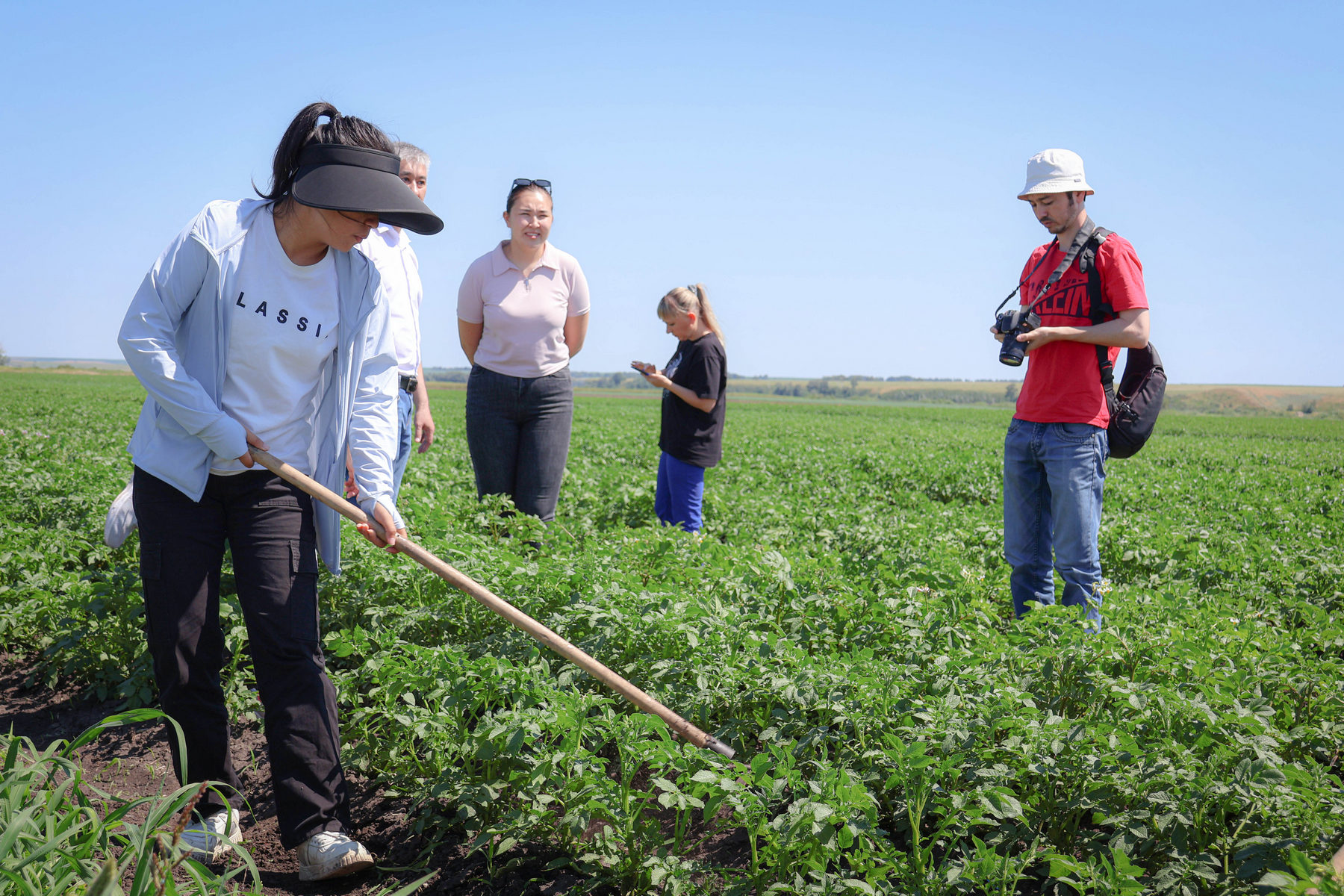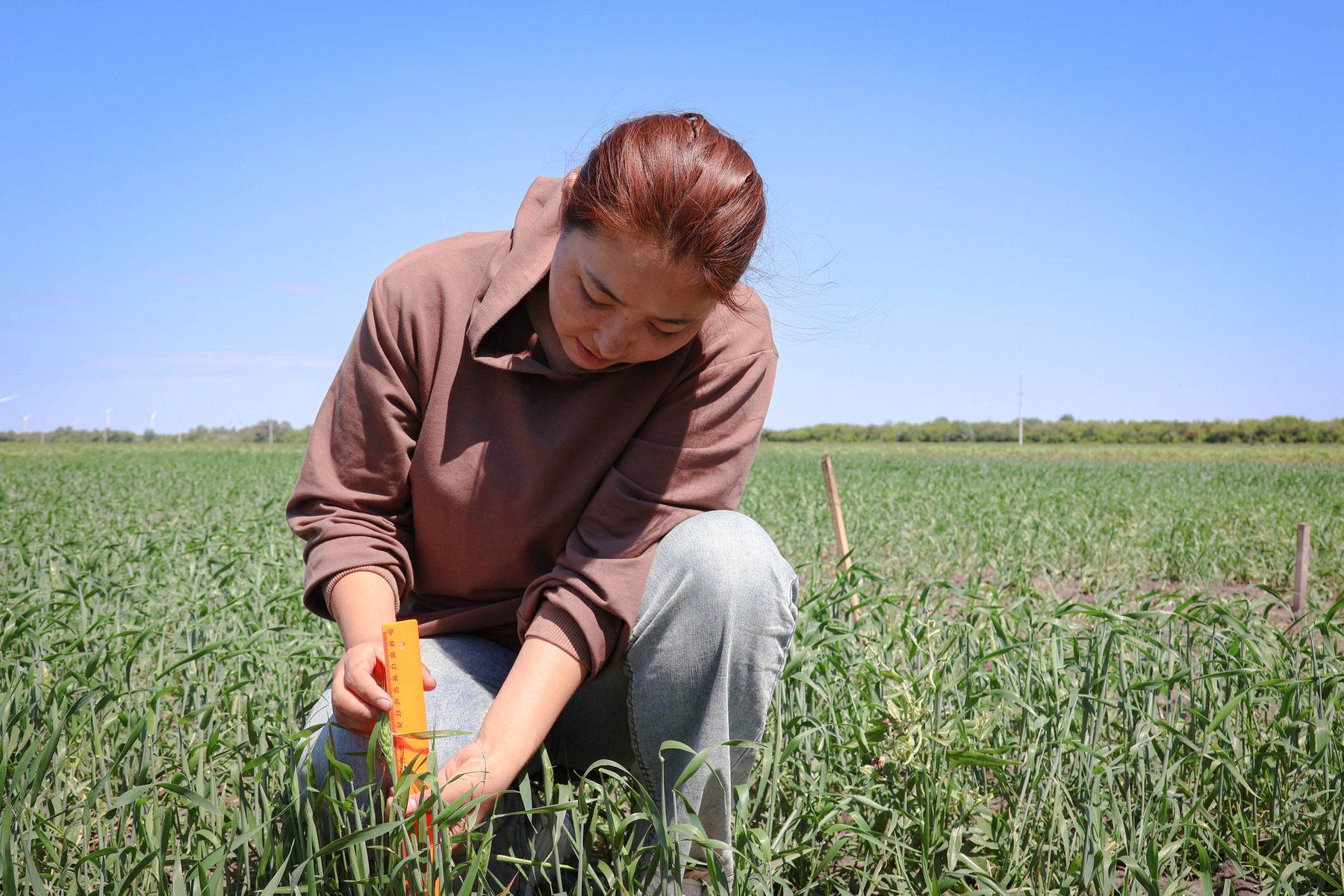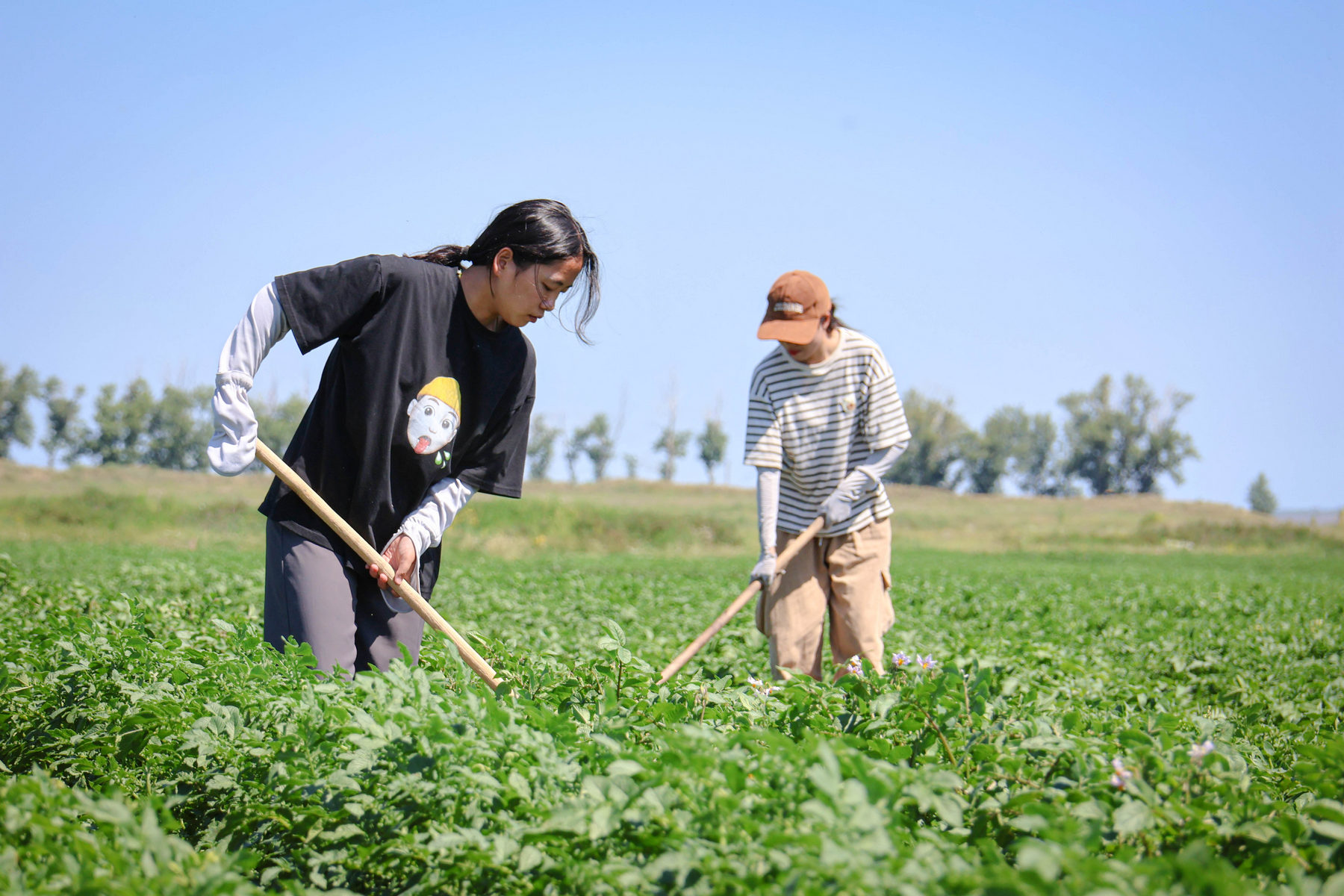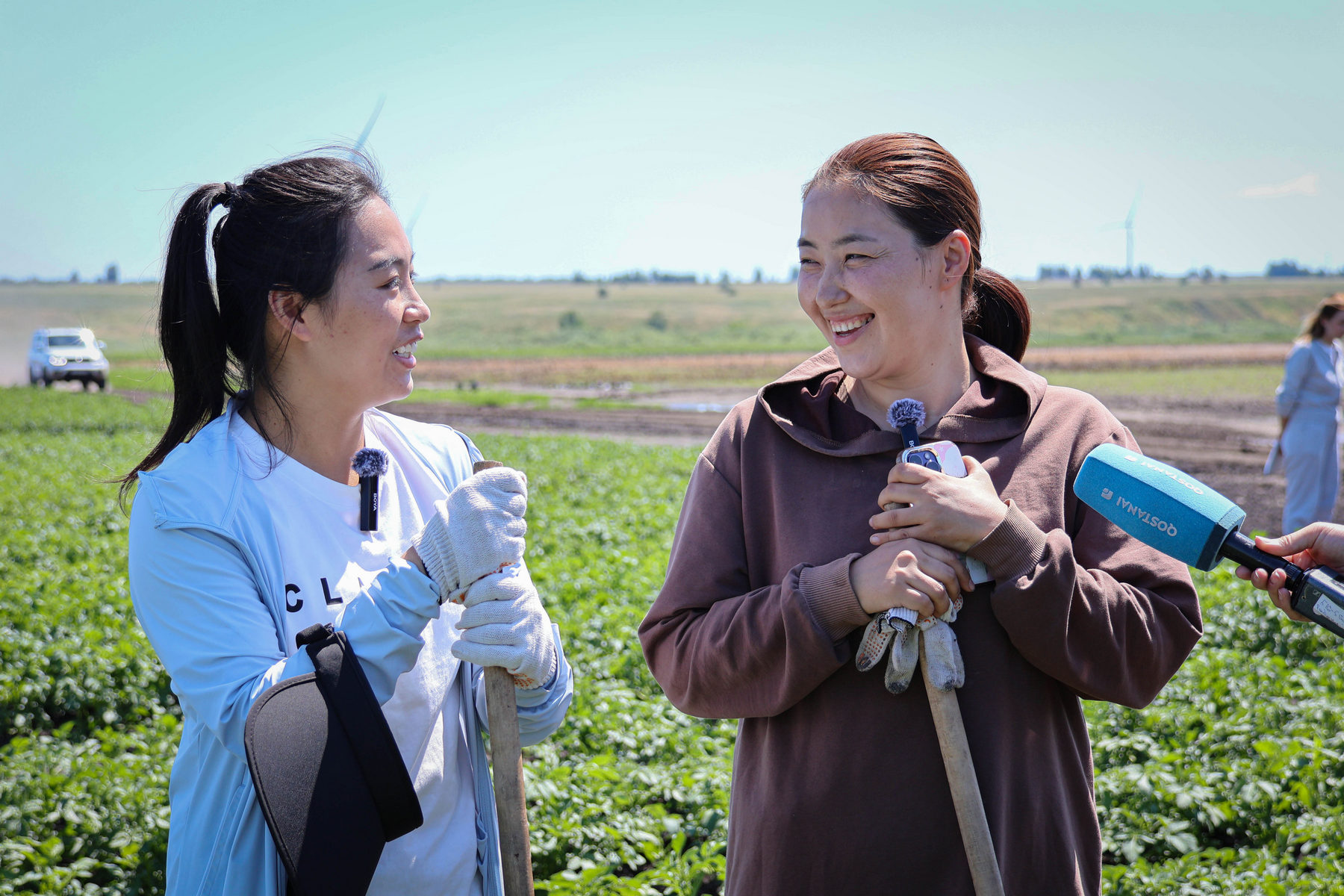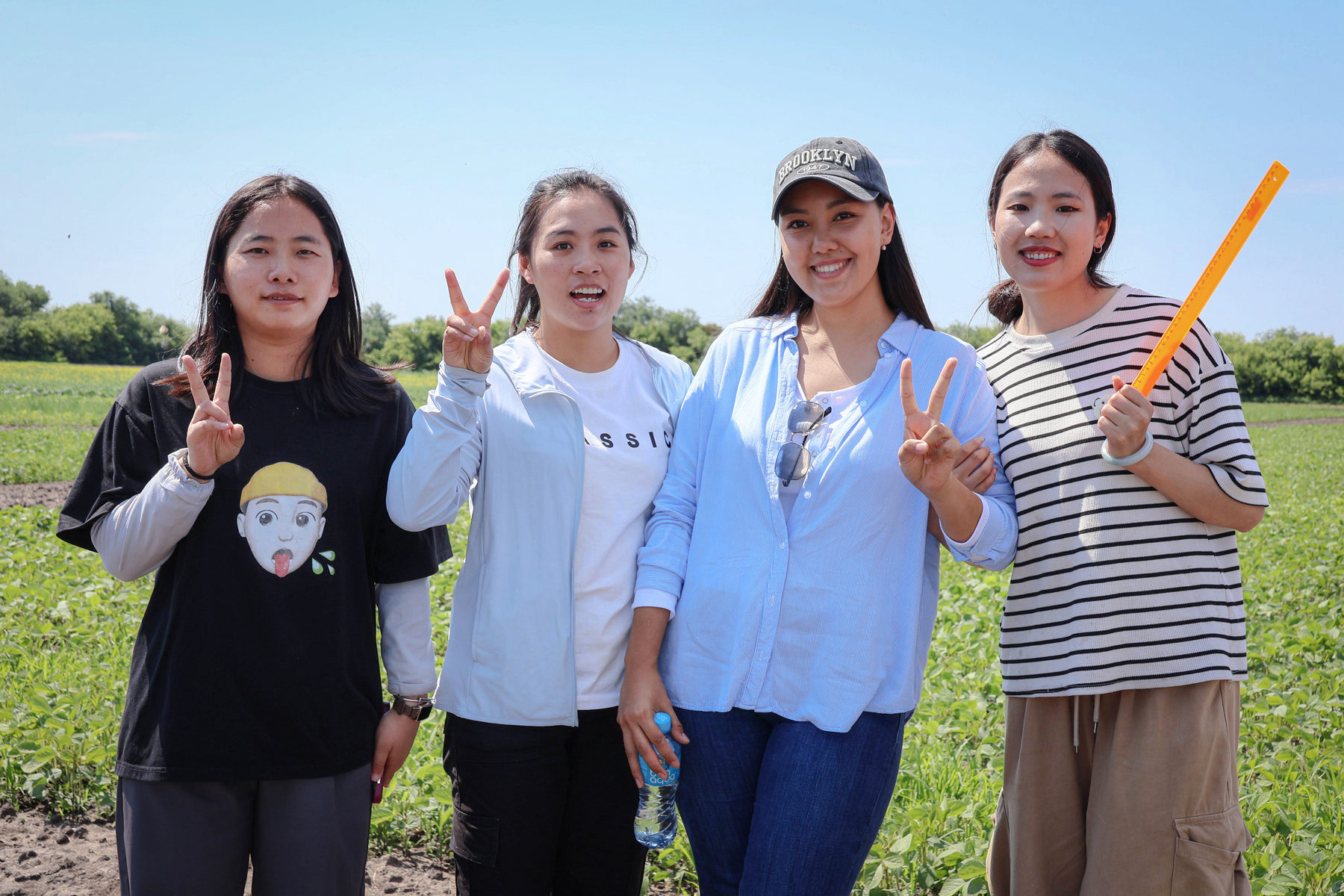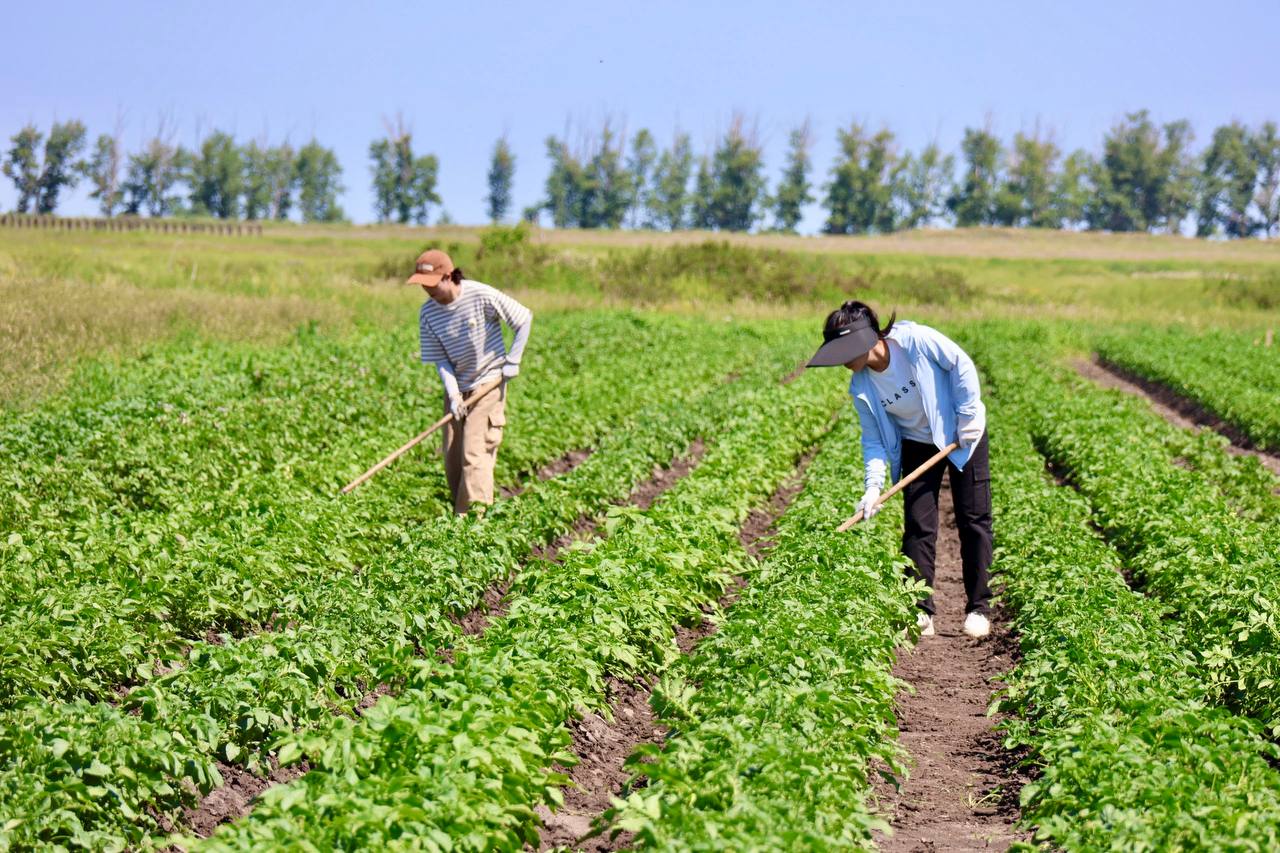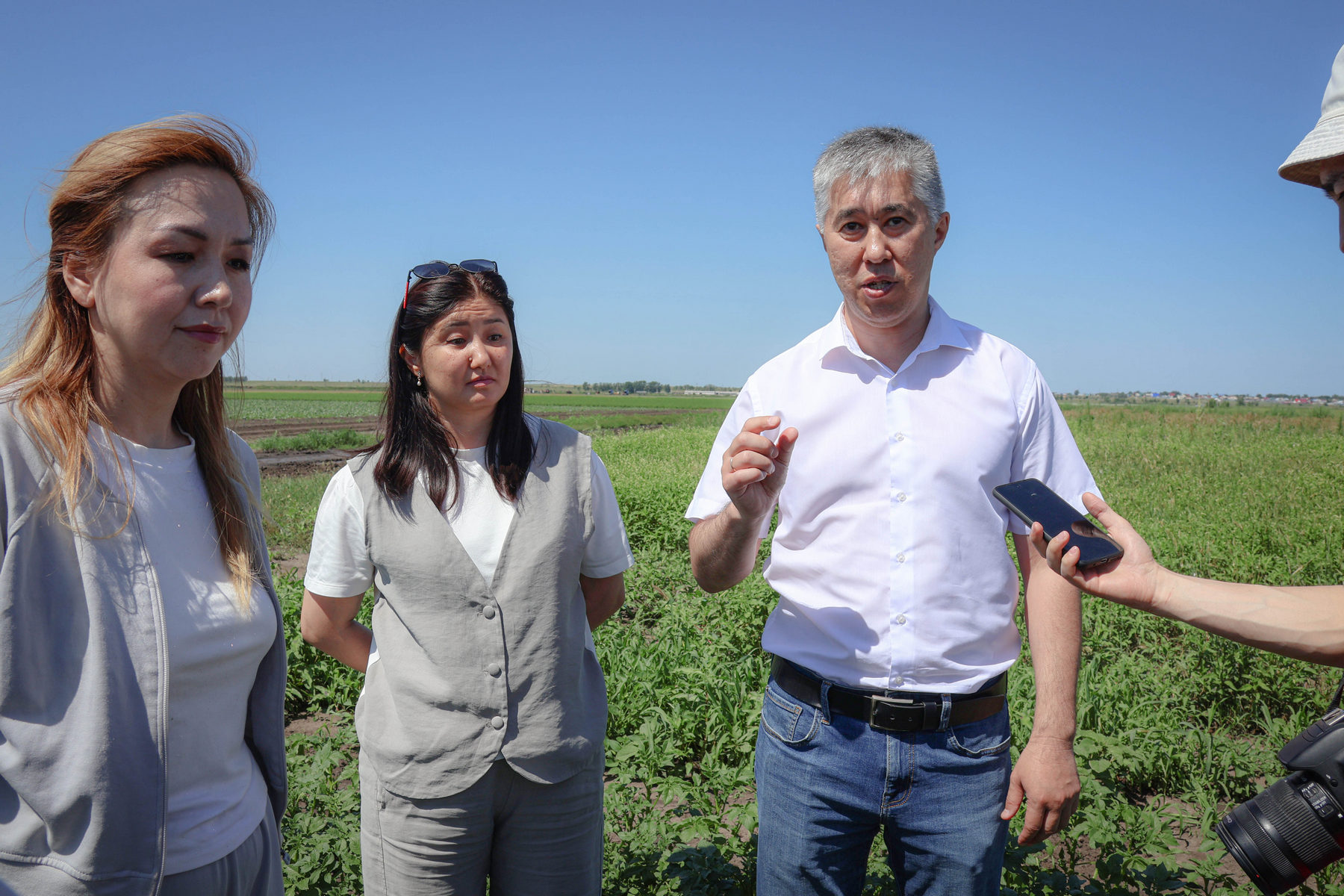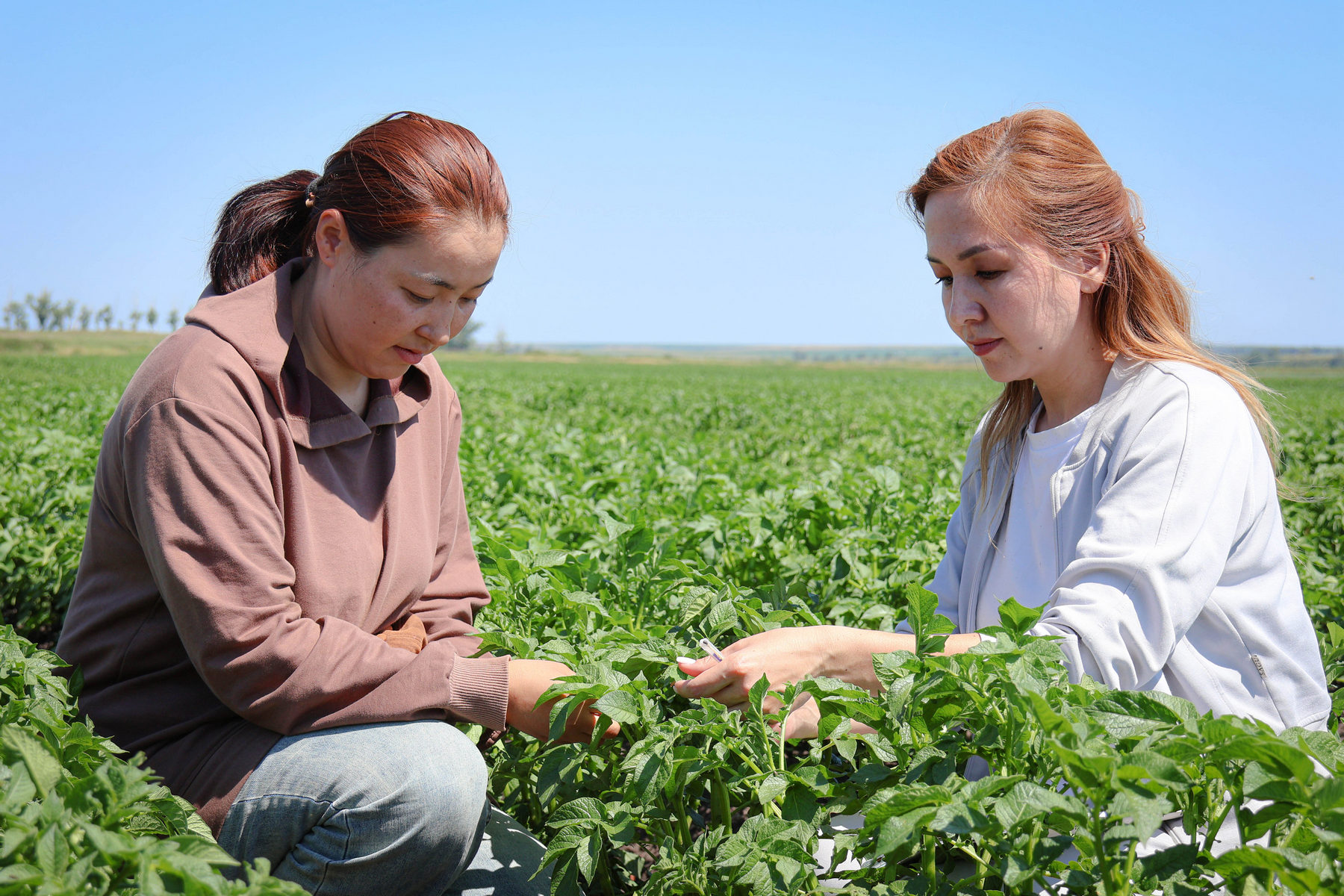Baitursynuly University scientists, together with Chinese colleagues, are growing experimental varieties of crops.
9 varieties of potatoes brought from China, the same number of wheat varieties, 5 varieties of soybeans, 3 varieties of corn, one variety of rapeseed and one of alfalfa were planted in experimental fields.
The survival rate of plants in the Kostanay region is monitored not only by scientists of the A. Baitursynuly KRU, but also by undergraduates of the Northwestern University of Agriculture and Forestry (NWAFU).
- This university is among the top 3 agricultural universities in China, - says Almabek NUGMANOV, Dean of the Faculty of Agricultural Sciences of KRU. – We have a multifaceted cooperation, which is based on both teaching students and conducting joint scientific research.
Chinese colleagues have selected seeds of crops that can grow in the conditions of our region. At the end of July, scientists from the partner university will come to us again to see how the research is going.
Chinese mini-tubers of potatoes grown in vitro by the virus-free method were planted in the fields of the farm "Terra". Its head, Vladimir Semeykin, helps gratuitously in scientific research. After all, they can eventually become a breakthrough in agriculture.
The plans are to introduce the most successful potato varieties to our region and grow them on a production scale.
- The tests will be conducted for three years, - explains Dr. PhD, associate professor of the Department of KRU Asiya AISABAYEVA. - The goal is to identify the best of the varieties according to biometric and qualitative indicators. One of the key ones is the preservation of tubers, since in China several potato harvests are harvested per year, and in Kazakhstan it is not cultivated in winter.
For Chinese master's students, fieldwork is the best form of practice. They have already been interning at Kostanay Regional University for two months.
"This is a valuable experience for me," says Tang Zhongyan. "At Kostanay University, there are excellent mentors, thanks to whom we gained new knowledge and became familiar with international agricultural technologies."
Kostanay scientists do not exclude that the result of this international experiment may be the creation of fundamentally new Kazakh-Chinese varieties.
